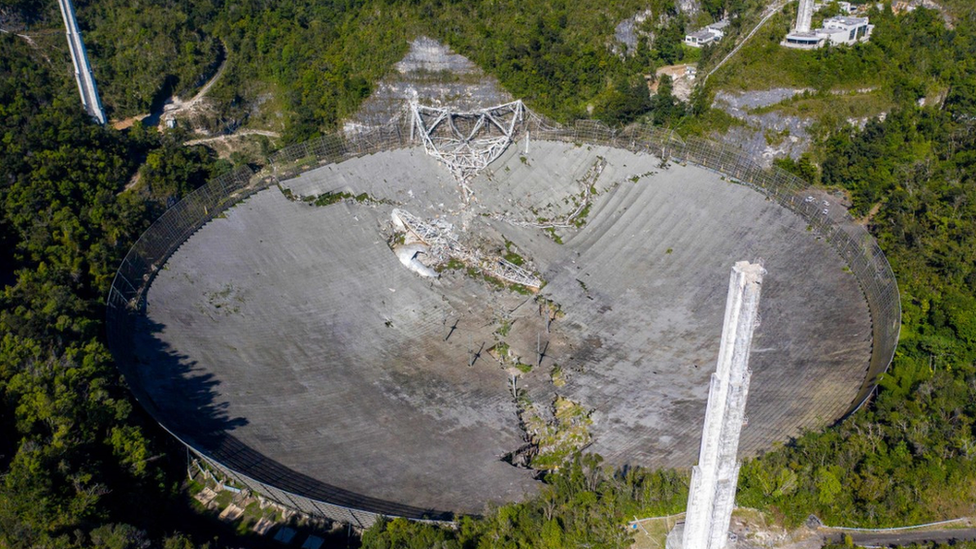Giant radio telescope collapses in Puerto Rico
- Published

A giant radio telescope in the Caribbean Island of Puerto Rico, which has been used to make Nobel Prize winning discoveries, has collapsed.
The famous telescope at the Arecibo Observatory was one of the largest in the world and it played an important part in making astronomical discoveries for decades.
Its instrument platform, which weighed 900 tonnes, crashed down and fell onto the radio dish which was around 137 metres below it.
The US National Science Foundation (NSF) said there had been no reports of injuries after it happened.
Why did the telescope collapse?
The telescope at the Arecibo Observatory before (left) and after its collapse (right)
The telescope was made up of a 305 metre wide radio dish which had an instrument platform hanging above it. The platform was supported by cables connected to three towers which helped to keep it in place.
The NSF said an investigation into how the fall happened is still continuing.
Two cables had broken from the scope before it collapsed - one cable snapped in August and another main cable was damaged in early November.
After a review, officials decided that the huge structure could not be repaired and had to be taken down for safety reasons.
"We are saddened by this situation but thankful that no one was hurt."
What has the telescope discovered?
This observatory telescope has made some really exciting discoveries since it was built in the early 1960s.
It found the first evidence for a type of object known as a neutron star, which is what's left of bigger stars after they've exploded.
Astronomers also used it to identify the first binary pulsar. Binary pulsars are two stars as massive as the Sun but squashed to the size of a city, orbiting around each other and spinning thousands of times a second.
The telescope's discovery of this earned it a Nobel Prize in Physics.
A neutron star
The telescope has also been used to listen for signals from other forms of life in the universe and to track down asteroids that may be heading towards earth.
Over the years, the main dish appeared as a location in movies, including in the James Bond film GoldenEye where actor Pierce Brosnan played the secret agent in 1995.
How does a radio telescope work?
SKA's Rupert XXXX explains how a radio telescope works...
- Published20 May 2020
- Published2 December 2020
- Published17 December 2019
